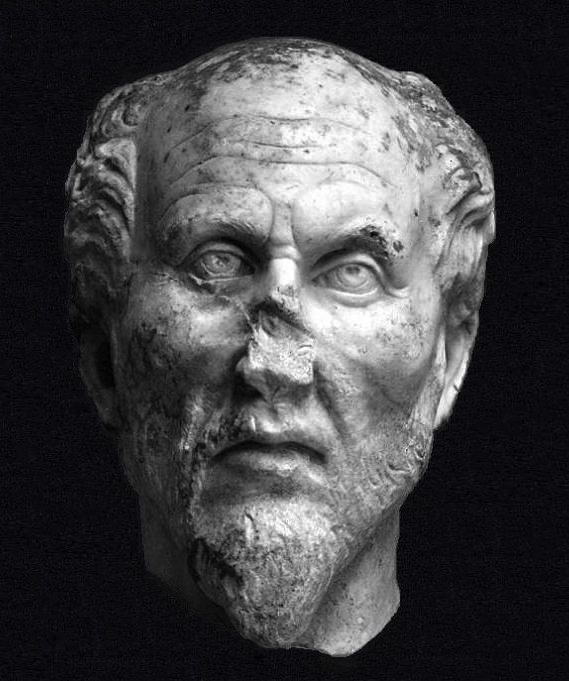‘Plato and, especially Aristotle, represent the pinnacle of ancient philosophy…’
Paul Redding, ‘Georg Wilhelm Friedrich Hegel’, Stanford Encyclopedia of Philosophy
‘The revival of the ancient Greek philosophy was tied to the decline of the Roman Empire, which was so vast, wealthy, and splendid, but inwardly dead; the greatest flowering of philosophy, the Alexandrian philosophy, emerged only then.’
‘So Greek philosophy has the thinking that determines itself within itself. It develops itself into a totality of the idea (the world spirit does nothing by half measures). Its consummation comes in Neoplatonic philosophy, with which the history of Greek philosophy draws to a close.’
‘The third [epoch of the first] period takes the shape of Alexandrian philosophy (Neoplatonism, but likewise Neo-Aristotelian philosophy too). The consummation of Greek philosophy as such, it established the realm of noumena, the ideal realm. This philosophy therefore incorporated all earlier forms of philosophy within it. Plotinus lived in the third century and Proclus in the fifth. By choosing to regard Proclus as the culmination of this philosophy, the entire period of Greek Philosophy then amounts to about one thousand years.’
G.W.F.Hegel, Lectures on the History of Philosophy 1825-6 Volume I: Introduction and Oriental Philosophy, Together With the Introductions from the Other Series of These Lectures, Trans. Robert F. Brown and J.M. Stewart, Clarendon Press, Oxford, 2009, 69, 162-3, 202
‘We need not concern ourselves with the interpretative adequacy of Hegel’s reading of Aristotle’s noesis noeseos doctrine, but simply note how it is this allegedly ‘speculative’ dimension of Aristotle that allows Hegel to link Aristotle to subsequent forms of thought. First, it is linked to what for Hegel was the most developed form of Greek philosophy, late antique Neoplatonism, (my italics) which could equally be considered a form of Neo-Aristotelianism (Hegel 1995: vol. 2, 381), especially in its Proclean form (ibid.: 438), and thereby to the trinitarianism of the succeeding Christian theology (ibid.: 440-49), which Neoplatonism had influenced.’
Paul Redding, ‘Hegel’s Philosophy of Religion’, in Graham Oppy and N.N.Trakakis eds., Nineteenth-Century Philosophy of Religion: The History of Western Philosophy of Religion, vol. 4, Routledge, New York, 2014, 49-61, 58


Does it mean pinnacle of thought or of teaching or both?
I thought Socrates contributed most to western philosophy.
Sincerely,
Anand 🙂
LikeLiked by 1 person
Hi Anand,
the reference is to a pinnacle of thought.
Paul Redding wrote the SEP entry on Hegel, the purpose of which should be to give a sense of Hegel’s philosophy.
While Plato and Aristotle represent the pinnacle of ancient philosophy for Paul Redding, Hegel believed that the philosophies of both had been absorbed into Neoplatonism, (which he equated with Neo-Aristotelianism) and thought Neoplatonism to be the pinnacle of Greek philosophy, as I think my quotations exemplify.
Earlier in his entry, Redding referred to the ‘dark mystical roots’ of Hegel’s philosophy without expanding on how the growth from these roots can be seen in it.
Not to do that is to deny the immense significance Neoplatonism had for Hegel (Hegel himself was complicit in this) and has in Western culture – a most gross failure for which generations of academics should be held to account.
Socrates, who left no written philosophy, lived what it is to be a philosopher – to permanently question, ethically and without fear.
He had the courage of his commitment when he was condemned to death for doing so.
Best regards,
Phil
LikeLiked by 2 people
Thanks for clarifying it Phil. Best Wishes. Anand 🙂
LikeLiked by 1 person
Very nicce post
LikeLiked by 1 person